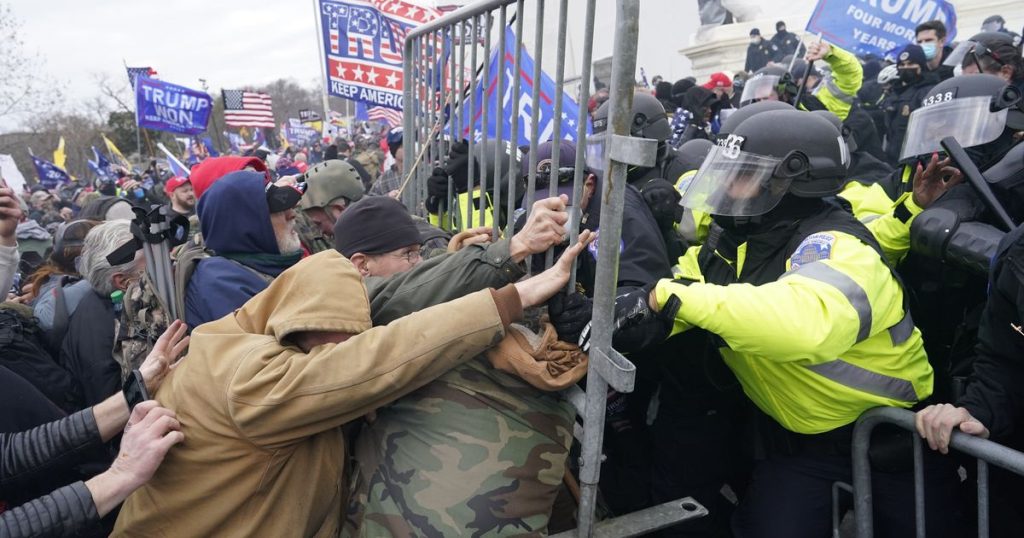The Supreme Court heard arguments challenging the use of a provision in a 2002 accounting reform law to charge participants in the attack on the Capitol on Jan. 6, 2021. Joseph Fischer, one of the mob members, argued that the law was not intended for situations like the insurrection. The Department of Justice has already charged over 300 individuals, including former President Donald Trump, with violating this provision. A ruling in Fischer’s favor could lead to the dismissal of this charge for him and hundreds of other defendants. The court’s conservative justices expressed skepticism about the government’s interpretation of the law, suggesting it was overly broad.
The 2002 Sarbanes-Oxley Act, passed in response to accounting scandals, contains a provision (1512(c)(2)) that prohibits corruptly obstructing an official proceeding. Lower courts have differed on how to interpret the use of the word “otherwise” in the statute, which separates the provision in question from the one preceding it. Fischer’s lawyer argued that Fischer’s actions did not fall under this provision as he was not attempting to alter or conceal a document when he participated in the Capitol breach. The court’s conservative justices seemed to favor this interpretation, questioning the government on past applications of the law to other protests that were disruptive.
During arguments, the liberal Justice Ketanji Brown Jackson raised concerns about the potential broader implications of the government’s interpretation of the law, questioning whether it could criminalize other activities like protests. Jackson sought a middle ground, suggesting that the court could limit the provision’s scope without dismissing charges against Jan. 6 participants. Solicitor General Elizabeth Prelogar argued that a person must have a corrupt intent and a connection to a specific proceeding for charges to be brought under the law. She also stated that charges would not be brought for minimal disturbances where criminal intent was not present.
The justices explored various hypothetical scenarios during arguments, such as pulling a fire alarm prior to a congressional vote or protestors blocking bridges to stop lawmakers from reaching a vote. The discussion centered on the importance of showing corrupt intent and a connection to a specific proceeding to bring charges under the law. It appeared that the justices were leaning towards restricting the government’s use of the provision in the Jan. 6 prosecutions. A narrower ruling, as suggested by Justices Jackson and Barrett, could allow some prosecutions to continue if intent to impede the certificates was proven. A broader ruling favored by the conservative justices may lead to the dismissal of charges against many defendants, including Trump. The court is expected to issue a ruling on the case by June 30.


